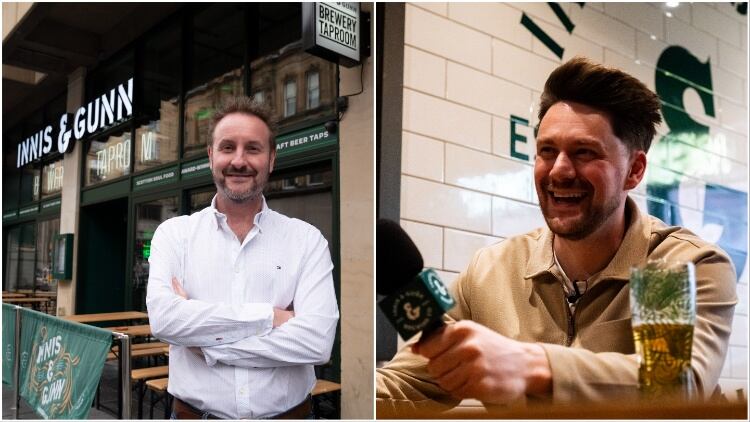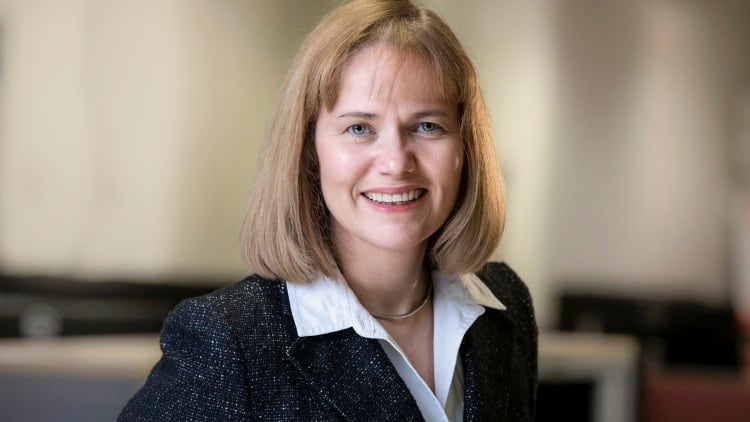Access Hospitality, which is a division of the Access Group, provides IT solutions for the hospitality business from guest booking, EPoS, table management and marketing to procurement, facilities management, training and hotel PMS.
General manager Tattersall told The Morning Advertiser: “I’ve always believed in a servant leadership mentality. If you do everything you can to help your team you will become successful as a result.
“Openness and integrity are essential qualities of a good leader. Having a high degree of emotional intelligence really helps you to read people and situations.
“It’s so important to be self-aware, to be able to give constructive feedback and most importantly, to expect that in return.
“Leadership is about strategy, vision and direction. Communicating that and being able to bring your team on the journey is crucial.”
He explains he has been in the tech industry for his entire career. Indeed, after graduating from Edinburgh University, where he studied AI a long before it was the giant has become now, he knew tech was where he wanted to be.
From university, Tattersall joined IBM and has since worked in several companies at various levels and with “lots of interesting people”, where he says he has constantly learned, developed and built his expertise.
Prior to the Access Group, he has worked at Learnlight, Coursera and Cornerstone OnDemand, all of which involved the provision of learning and human capital management (HCM) solutions to customers in the UK, Europe or globally.
It was at open online course provider Coursera where Tattersall enjoyed a highlight of his career.
He explains: “My highlights have usually been around periods of change where there’s been both challenge and opportunity. Probably the best example of this is when I was at Coursera running the EMEA business with an amazing team.
“When I joined we were 12 people in a one room office. Four years later, we had more than 200 employees, operations in multiple companies and consistently delivered more than 100% year-over-year growth.
Incredibly challenging
“Like many businesses, we had to go through major adaptation pre-Covid, during Covid and post-Covid. We had to reinvent ourselves multiple times, launching new products, serving whole new customer segments and geographies and responding to other macro level events around the world.
“We also had the opportunity to positively impact people’s lives my making some of the best courses in the world available to people who had no access to universities or other forms of education. Seeing some of our incredible learner stories was genuinely humbling.”
Pressure is a factor in everyone’s jobs and Tattersall reveals his emotions on the subject.
“When things go wrong because of circumstances that are totally out of your control, but nevertheless impact your team, it can be incredibly challenging,” he says.
“Sometimes these challenges can become opportunities, other times they can be very difficult to do anything about in the short term and put people’s jobs at risk. Having to make decisions that can negatively impact people’s lives is often the toughest part of the job, no matter how compassionate we seek to be in the process.”
In the earlier stages of his career, he always thought leadership was about making the key decisions and that these would be based on information he would never have access to.
He continues: “Back then, I worked with a lot of people that would be very guarded in what they would share. What I found interesting was that as people become more senior within organisations, they also become more open and direct.
“This is partly driven by cultural norms evolving into more transparent information sharing, but also when you have a senior role, time becomes precious.
“Being direct, open and efficient with communication is just the most practical way to be to make the most of your limited bandwidth, whether that’s internally or with your customers or suppliers.”
He adds the more that is shares openly, the more trust is built and a “sense of team” but what he really learned is that only a small part of being a senior leader is making decisions and a much bigger part is about empowering teams to make their own decisions, building trust, guiding and coaching where needed, but enabling people at all levels to have the autonomy to apply their skills in the most effective way possible.
Tattersall jokes if he could start again from scratch, he’d have invested in all the huge tech companies long before they ever became household names.
He says: “Joking aside, I’ve never been one for looking backwards. It’s easy to think that life might be better if we’d made different choices but I often think it could be worse.
Listening and learning
“Those bad experiences we’ve all had, the career missteps, the unexpected shocks you never saw coming – they help build resilience and skills to deal with the challenges that will inevitably come your way.
“Often a great opportunity comes from having to exit from something that wasn’t working out. So I wouldn’t change anything – I’m genuinely happy in the role I have today and all the positives and negatives over the years have led me to this point.”
His advice for anyone wanting to develop their career is threefold.
Firstly, he states, one should constantly ask for advice and make sure people are aware of your desire to progress.
“If people don’t know what you’re aspiring towards, they can’t help or guide you,” Tattersall says. “And you might be surprised at how many people would be very willing to do just that.”
Secondly, take on as many additional responsibilities as you can manage that align to where you want to go next and show your commitment and willingness to progress as well as evidencing that you already have much of the skillset required for your next role.
Finally, he says you should be your own brand ambassador and explains: “This can be difficult for some because it can feel like you’re trying to show off in some way. But this isn’t about being boastful, it’s about awareness.
“It’s letting people know what you’ve done, what you’ve achieved, the successes you’ve had – because if you don’t let people know about them, it’s unlikely anyone else will do this consistently on your behalf.”
“I’m always listening and always learning,” Tattersall states. “At work and in my personal life. You can always learn from others, whether that’s colleagues, friends or just other people you meet in life. You’re never going to be an expert in everything so learning from and leaning on those experts is crucial.
“Observing how people operate and how they deal with challenges and difficulties tells you a lot about a person and building those skills in your personal life can help you professionally.
“It’s probably a cliché, but I learn a lot from my kids – they are growing up in a different world to the one I lived in as a child and I find their perspectives fascinating and they often challenge my own world view. Being open to the idea that you might need to change the way you see things can really help bring authenticity and adaptability to leadership.”
On the ideal of leadership being a lonely position to be in, Tattersall explains: “I understand it. If you are the one that runs a business, or a department, and you have no direct peers to share your experience with, then ultimately accountability and responsibility stops with you.
“Often you can’t have a truly open conversation with your colleagues about your fears, doubts or concerns but if you can build relationships with people who have been where you have – whether through friends, mentors, coaches or your network, it doesn’t have to feel that lonely.
“If you have the fortune to work with wonderful people in a company with a great culture, that also makes a massive difference.”




